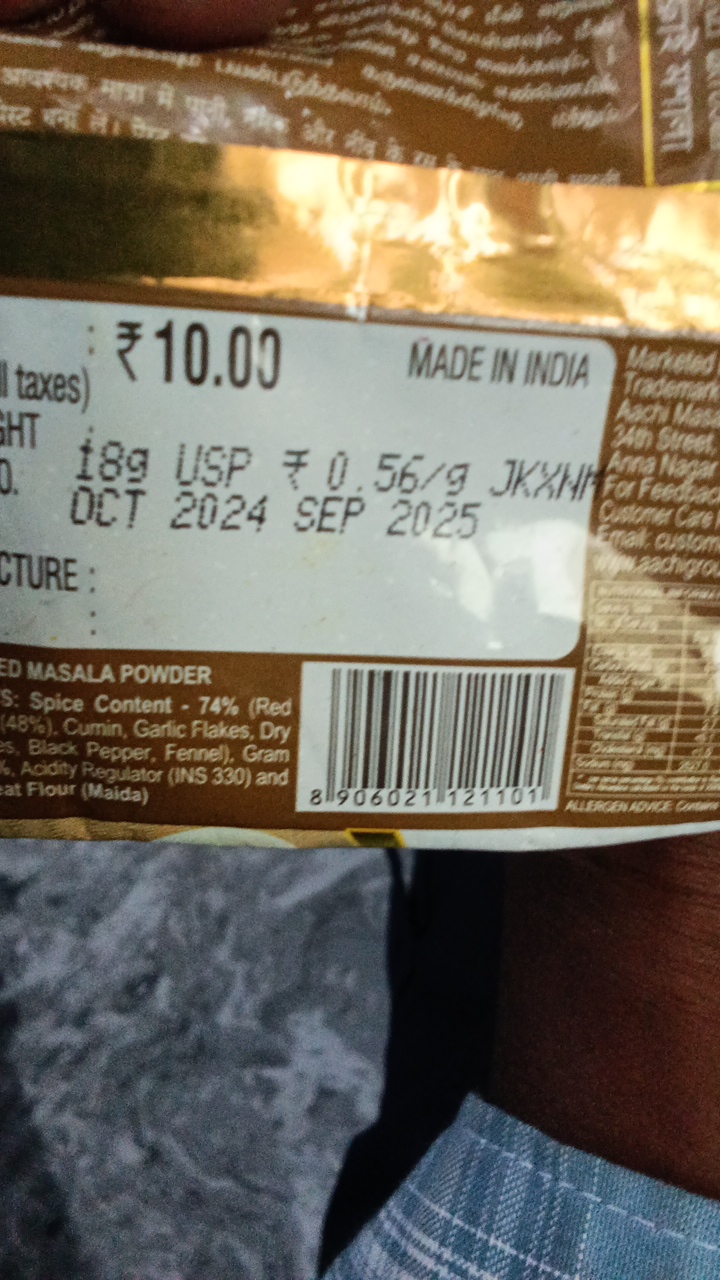
Barcode: 8906021121101
masala powder
HALAL
📝 Reason: Based on the ingredient list provided and cross-referenced with reputable Halal sources, all listed ingredients in this masala powder are plant-based or common food acids with no indication of Haram or doubtful substances. According to Quran 5:3 and IFANCA guidelines, foods without Haram or suspicious ingredients are considered Halal. None of the listed ingredients appear in the Haram_Ecodes_list or Doubtful_Ecodes_list. Certifications and labels are not specified, but none of the ingredients require them unless derived from animal or questionable sources.
🏷️ Category: Spice
📄 Certificates: Made In India, Vegetarisch, Vegan
Ingredients:
Details
Understanding Halal Status of Masala Powder
For those seeking clarity about the Halal status of cooking ingredients, masala powder is an essential spice blend worth examining. Masala powder is commonly used in various cuisines, especially in Indian and Southeast Asian cooking, to add rich flavors to dishes. Its ingredients, mainly derived from plant sources, have gained attention for their compliance with Halal standards.
Ingredients Analysis
The masala powder in question contains the following ingredients:
- Red masala powder
- Spice content
- Red chili
- Cumin
- Garlic flakes
- Dry ginger
- Black pepper
- Fennel
- Gram dal
- Acidity regulator
- Wheat flour
According to reputable Halal sources, all listed ingredients are plant-based or common food acids, with no elements indicating Haram or doubtful substances. As per the Quran (5:3) and IFANCA guidelines, foods that do not contain Haram or suspicious ingredients are regarded as Halal.
Detailed Ingredient Breakdown
- Red masala powder: This is a blend of various spices that primarily come from plant sources. No Haram or doubtful contents have been identified ([IFANCA](https://www.ifanca.org/resources/halal-and-haram-ingredients-list/)).
- Spice content: A general term that encompasses various spices, all of which are typically derived from plants and considered Halal unless there’s risk of cross-contamination.
- Red chili: Fully plant-based and Halal.
- Cumin: A spice derived from plants, Halal compliant.
- Garlic flakes: Made from dehydrated garlic, this ingredient is plant-sourced and Halal.
- Dry ginger: Created from dehydrated ginger root, it is also plant-based and Halal.
- Black pepper: This spice derives from the fruit of the black pepper plant, confirming its Halal status.
- Fennel: Plant-derived and considered Halal.
- Gram dal: A legume, thus Halal.
- Acidity regulator: Not specifically categorized as any E-code. Generally, food-grade acids like citric acid are Halal barring their sources being Haram.
- Wheat flour: Derived from wheat grain without any concerns regarding Haram ingredients.
Certification Context
While certifications and labels are not explicitly stated for the masala powder, it’s important to note that none of the ingredients require such certifications unless they originate from animal or questionable sources. Being aware of the product’s manufacturing and packaging, especially if Halal-certified, can provide additional assurance for consumers. As it stands, the ingredients detailed above have not been marked on the Haram_Ecodes_list or the Doubtful_Ecodes_list, further solidifying its Halal status.
Conclusion
In conclusion, masala powder emerges as a Halal-friendly option for spice enthusiasts and cooks who align their culinary choices with Islamic dietary laws. Those exploring its Halal status can feel confident in the absence of Haram ingredients and potential contaminants. Enjoy the rich flavors of this essential spice blend knowing its basis in Halal-compliant sources.
